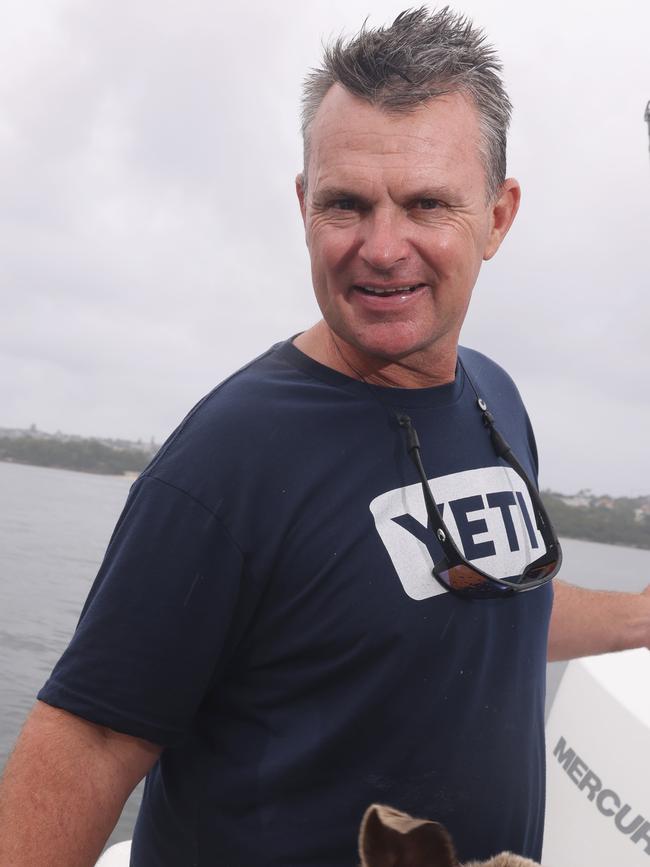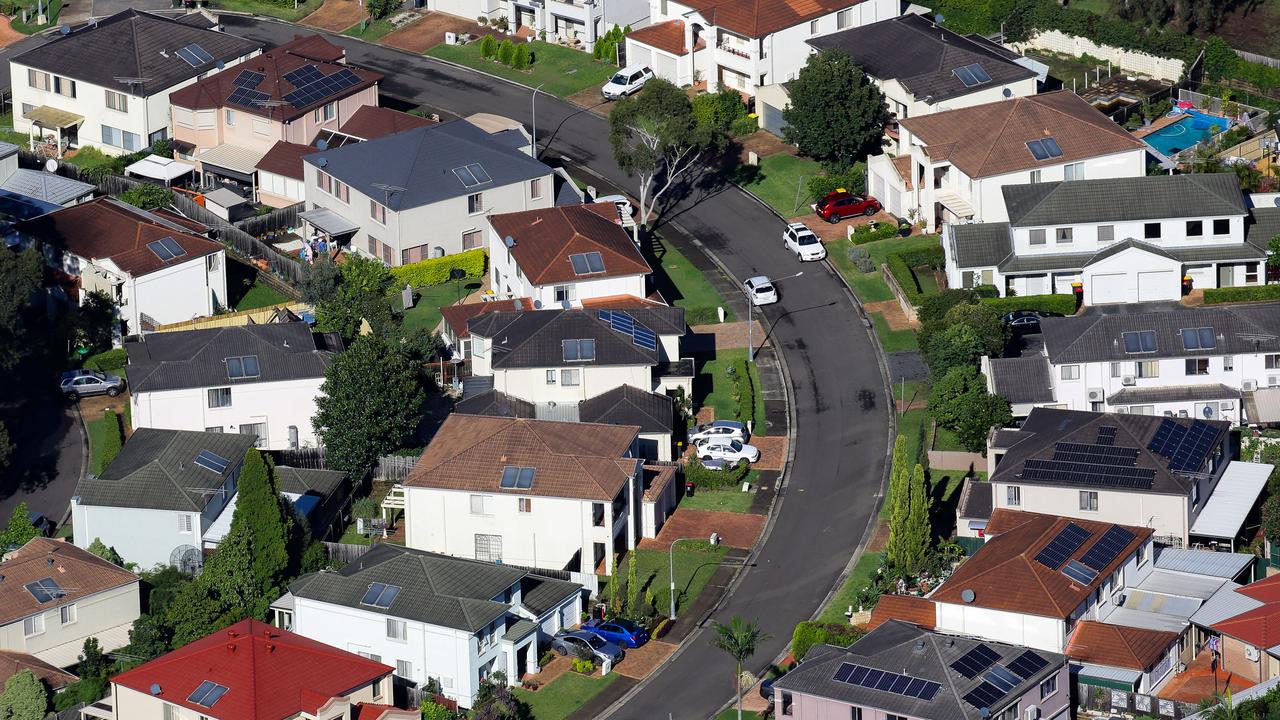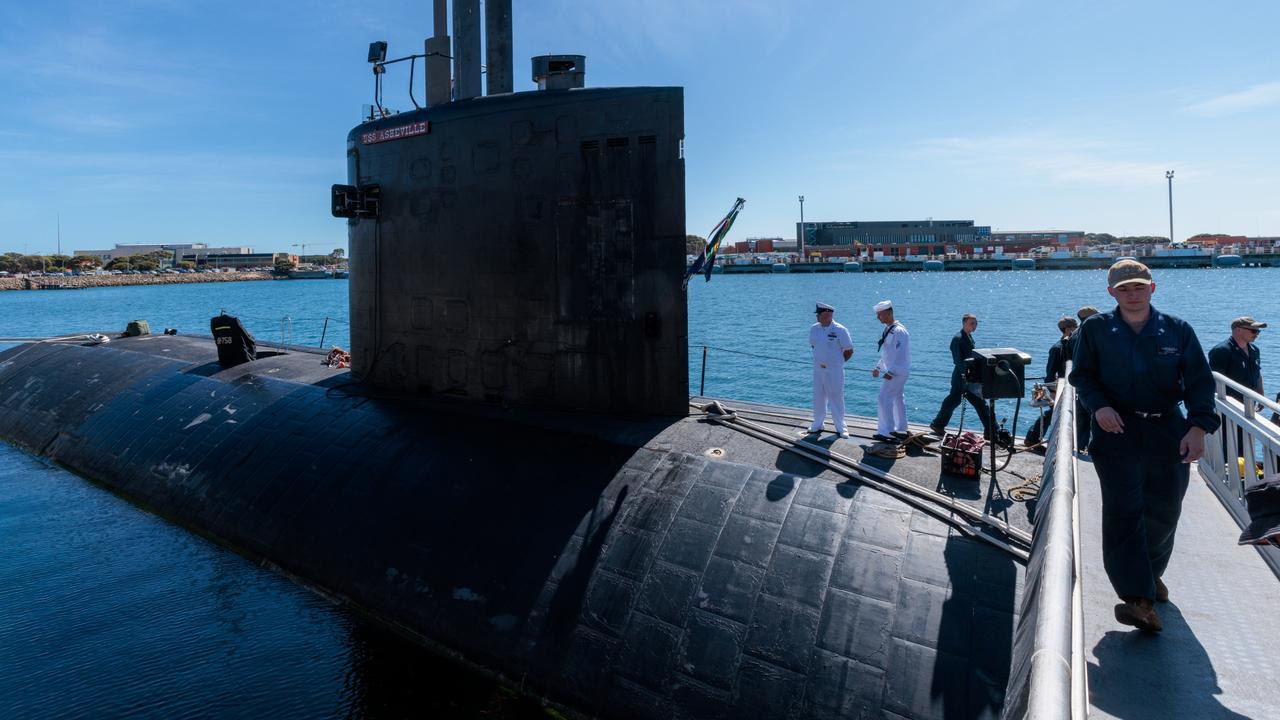Antarctic ice melt could slow down ocean currents, say UNSW and ANU researchers
Aussie researchers have revealed the dramatic impact sustained melting of Antarctic ice will have for the fishing industry and our weather. See the results.

Environment
Don't miss out on the headlines from Environment. Followed categories will be added to My News.
The melting of Antarctica’s ice shelf will not only cause sea levels to rise, but it will slow down ocean currents, with dramatic implications for the fishing industry and even our weather, Australian scientists say.
In modelling published on Wednesday in Nature, a team of researchers from UNSW, ANU and CSIRO say if global greenhouse gas emissions continue at their current rate, leading to sustained melting of Antarctic ice, the rate of circulation of deep ocean currents in the southern hemisphere will slow down by 40 per cent by 2050.
According to lead researcher, Scientia Professor Matthew England from UNSW, this will cause a serious loss of oxygen in our ocean water.

“The very bottom of the ocean would become depleted in oxygen, and that would keep declining over time. Over the decades that follow we’re going to have a reduction in the upwelling of cold nutrient-rich water coming to the surface, and that upwelling is very important because it provides nutrients for the base of the food chain, phytoplankton and so on. This will impact on our ecosystems and fisheries over the long term,” he said.
The consequence of low-oxygen water on species was recently and horrifically demonstrated by the sudden deaths of millions of fish in the Darling River near Menindee.
Prof England said the slowing of ocean currents would not produce such dramatic results as were seen in Menindee, but it was an “analogous situation”.
“What we are talking about is basically a deoxygenation of the bottom of the ocean, and a reduction of nutrients in the upwell. Ocean life needs oxygen and nutrients to thrive,” he said.

News Corp’s fishing writer Al McGlashan said changes in currents were already impacting on the industry, specifically the strengthening of the East Australian Current, “which is getting warmer and pushing everything further south”.
“It’s certainly impacting not just on marine life, but on a majority of Aussies who live on the east coast,” he said.
The new research shows the slowing ocean currents could affect even more Australians, through changes to our weather patterns.
If the modelling proves to be correct, Prof England said, “the monsoon to the north of Australia will become much drier. If you slow the overturning [current], that shifts the balance toward more rainfall north of the equator, and less rainfall south of the equator.”


While scientists have long examined the slowing down of ocean currents in the northern hemisphere, the new Australian research shows the slowdown effect will actually be greater in the southern hemisphere.
Prof England stressed that while some slowdown was already occurring, it was still possible to prevent the full collapse of the system by cutting global greenhouse gas emissions.
The twin effects of the melting polar ice caps – sea level rise and slowing currents – would play out in different ways, he said.
“Sea level rise is going to transform our coastline, but it plays out very very slowly; we’ve only had about 25cm so far,” he said.
“Sea level rise is going to dwarf the impacts of a slowing circulation, but a slowing circulation is going do a lot as well, and on a shorter timescale.”
Originally published as Antarctic ice melt could slow down ocean currents, say UNSW and ANU researchers





